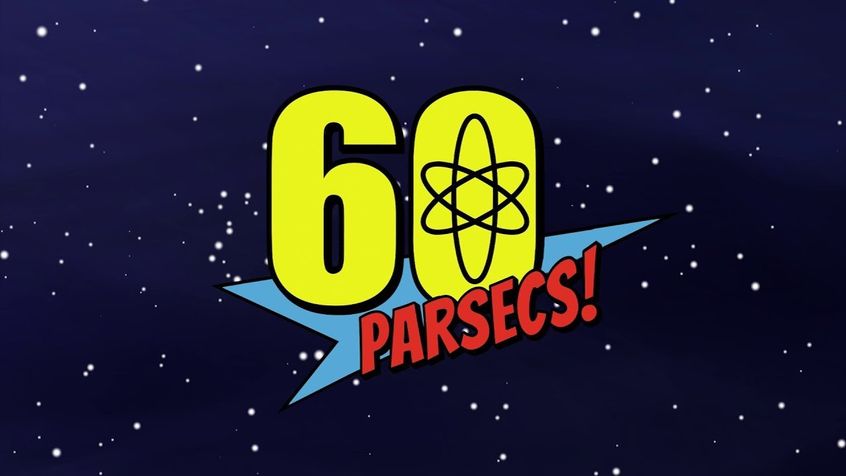60 Parsecs
I’ve noticed an interesting trend in reviews on Steam. There are some that are very useful and give a lot of information about the game, and there are some that give very little, or are solely memes. It often feels like Steam reviews exist in their own special genre of review, more akin to what old people leave on Amazon, the sort of thing that a message in your library asking what you thought might lead you to write, whether that be too much, or just enough to assuage the guilt that little nudge evokes.
Not that I know anything about that.
Sandwiched in between these two categories, though, are a third category. These are generally negative, and critique the game on something that isn’t relevant to the game itself. These might be comments about the price of DLC or some action taken by the developer, but most commonly, I see reviews criticising a game for its lack of replayability. I see these even on games like walking simulators or visual novels, games whose very nature, I’d argue, makes them a one-off experience. There is a trend of criticising games for a lack of replayability as if replayability is a trait every game should have. It, in some ways, forces developers to add some sense of replayability, like Before Your Eyes adding Steam achievements for replaying the game, or Ashwalkers having 34 different endings. These sorts of critiques force games into a model of giving the player as much reason as possible to replay, even if no actual reason exists, lest they be criticised for not giving a reason. It implies there is a growing lack of space for games that tell a single story.
I’ve been thinking about these critiques of replayability and where they’re coming from. While I understand not everyone’s library is as…ah…extensive as mine, I think I generally make the assumption that people do have more than one game to play. In thinking about the rising price of games, though, I can see how paying $10 for a one-off experience game can seem steep. People want their money’s worth, and while I think of games like that as interactive films or books, not everyone does. In the context of expecting a game to provide a meaningfully interactive experience or a world to get consistently engrossed in, replayability as a game quality becomes increasingly important. It’s less that there’s more story to explore, and more that a game ought to provide some variation when replayed. It’s that disconnect between expectation - what is a story game? A story or a game? - that creates a perhaps unreasonable standard of a game needing to have some degree of replayability.
I bring this up because I’ve generally been fairly sceptical of these critiques that judge a game based on its replayability. I am one of those players that generally plays a game once, then judges it on how well it does in that single playthrough. If I play it more than once, it’s because it’s a game where the various playthroughs will be sufficiently different that the overall experience will be different; otherwise, the single playthrough can capture that experience. 80 Days is a good example of when I do evaluate a game’s replayability, and in that case, I did so because the game itself asks the player to retell the story and reconsider it with different choices. It’s a game that not only asks, but insists on being replayed to truly understand what it is.
Which brings me to 60 Parsecs.
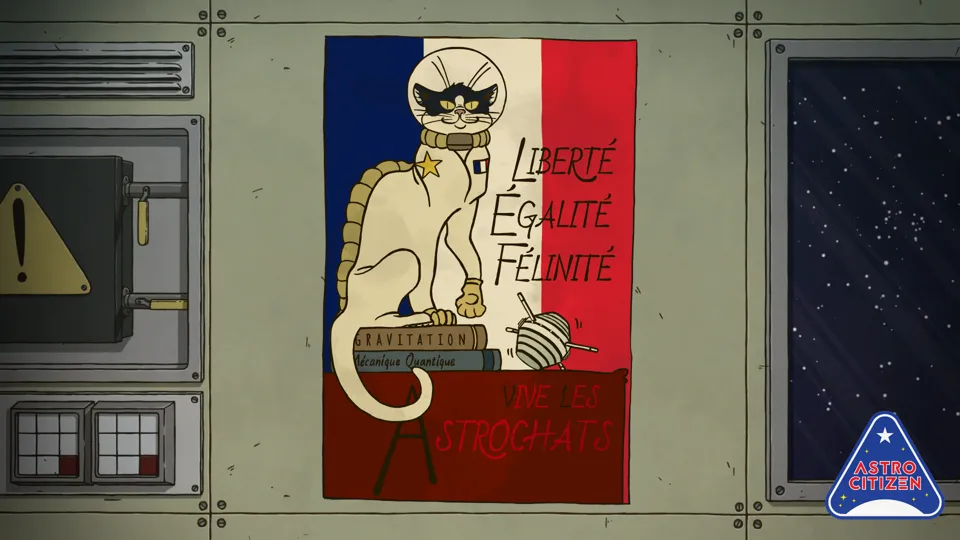 Pictured: Hell if I know
Pictured: Hell if I know
60 Parsecs is a survival game in two phases. You play as the captain of a ship, blasted sixty parsecs from Earth, unable to return to a planet now blasted into a nuclear hellscape. You are tasked with the survival of your crew as you seek out a new home in the cosmos.
In the first phase, you are given sixty seconds to gather everything you will need for survival from your base. Crewmates, sock puppets, soup, everything is grabbed and tossed into the escape shuttle. At the end of sixty seconds, regardless of what you have grabbed or if you’re ready, the shuttle is launched, and you are forced to made do with whatever you happened to grab.
The game then transitions to its second phase. Here, the crew is forced to survive as they search for a new home. The crew must make do with dwindling supplies, diminishing morale, and random events, all in the hopes that they might eventually find a safe planet to call their own.
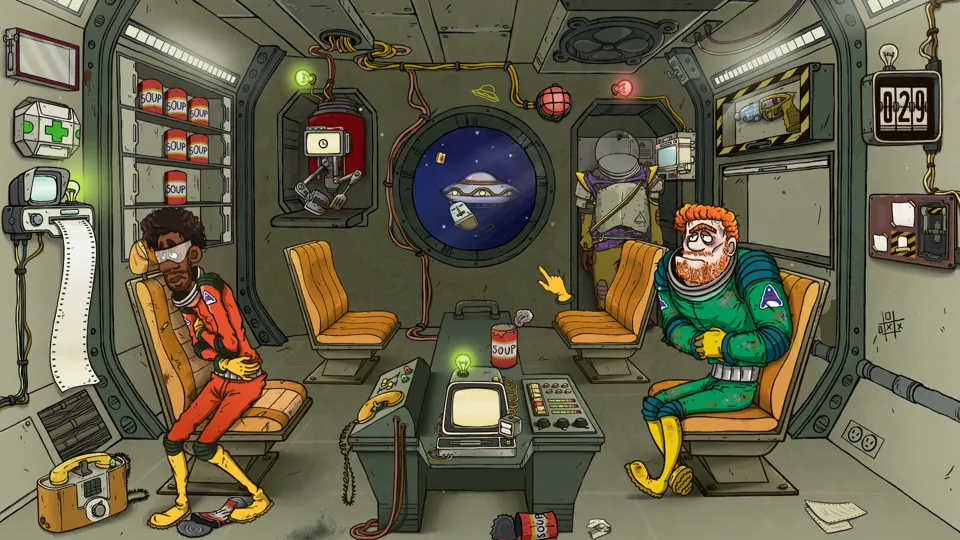 This is fine.
This is fine.
All of this seems like a good combination for a survival game. There’s the careful balancing of needs, the tough decisions about how to use limited supplies, and random events to spice things up. On my first playthrough, I had the sense that it was a solid little survival game. Nothing fancy, nothing involved, but perfectly decent. I also, after dying after a few weeks, recognised there was more to this game than I had seen. It was a game that prided itself on its permutations and the challenge of any given run, and so needed to be replayed to fully experience what it had to offer. It’s one of those games that could be judged on its replayability, because it insisted it was replayable.
I loaded it back up.
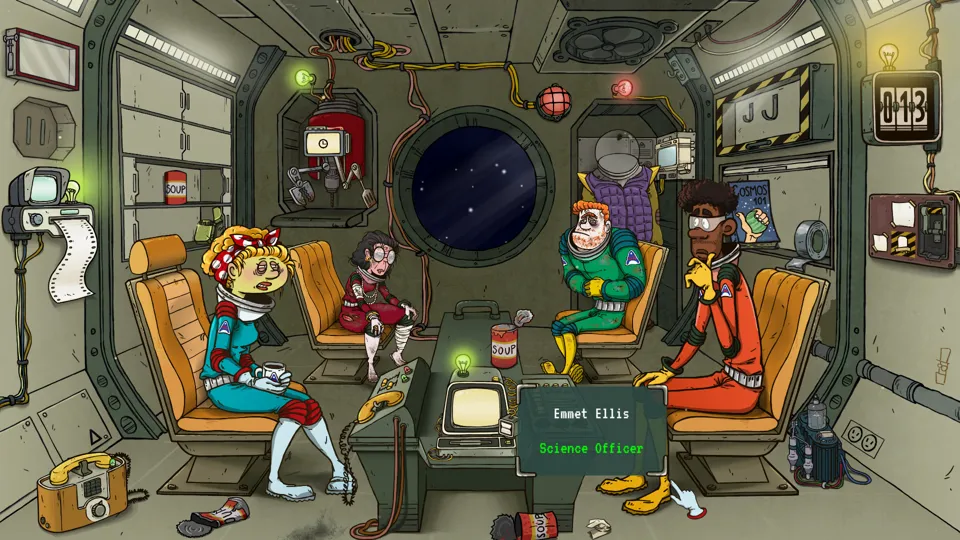 This is still fine.
This is still fine.
I loaded the game back up, went through the rigamaroll of launching myself into space again, and tried again with a new crew. This time, some of the events were different. Some of the outcomes were different. The order of the events was different.
As I sat there in my spaceship, though, I realised that the playthrough itself wasn’t different. Oh sure, it had a different outcome and my whole crew didn’t die, but the actual experience of playing the game wasn’t different. It felt tedious to play through and stare at the same faces and same ship. It felt tedious to go through the same shortage of items with the same resolution, or to implement the same starvation routine. Even within the playthrough itself, going from day to day felt deeply tedious, and I wondered less how I was going to survive, and more how much longer the game expected the run to take.
It’s here, when a game asks us to replay, but can’t muster up a reason that that replay would offer a new experience, that it’s valid to criticise a game’s replayability. When the first playthrough is fundamentally the same in the experience it offers as the tenth, there ceases to be a reason to play. With 60 Parsecs, that lack of reason to continue manifested not only between playthroughs, but within the playthrough itself. While making every day resemble every other day is stylistically fitting for a game about being trapped on a spaceship for weeks on end, it isn’t particularly engrossing or interesting gameplay. It becomes an exercise in patience to make it through a single run, let alone the prospect of another one.
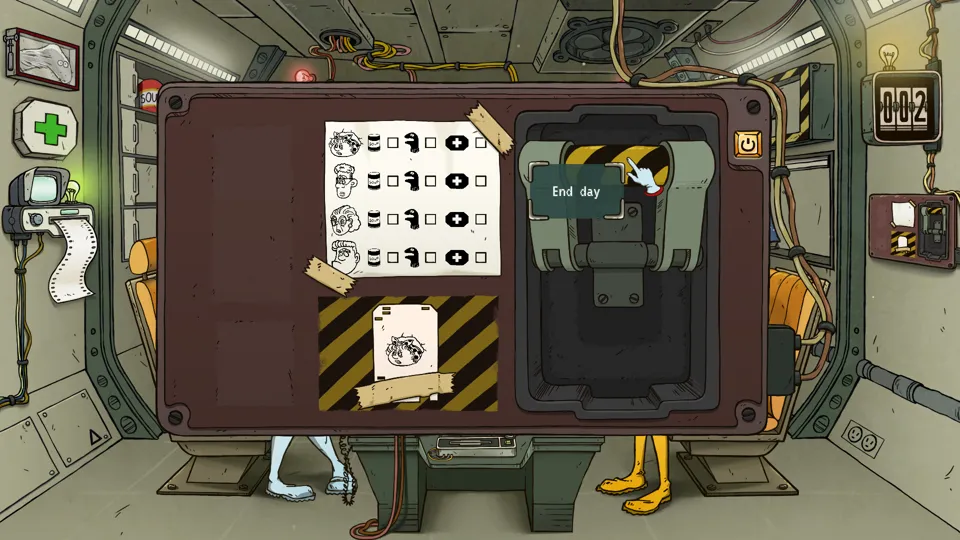 every day is exactly the same
every day is exactly the same
While there are clever writing and fun little moments throughout 60 Parsecs, it isn’t enough to overcome the boredom of its fundamental mechanics. It isn’t an interesting enough survival game to be worth playing on that front, and its story and world aren’t fleshed out enough to be interesting. It is instead a hollow shell of what it could be, a tin can with a bit of game rattling around inside, being thrust in my face with the question of if I’d like some more.
Developer: Robot Gentleman
Genre: Survival
Year: 2018
Country: Poland
Language: English
Play Time: 20-30 Minutes/Run
Youtube: https://youtu.be/cz1f770zNS8
